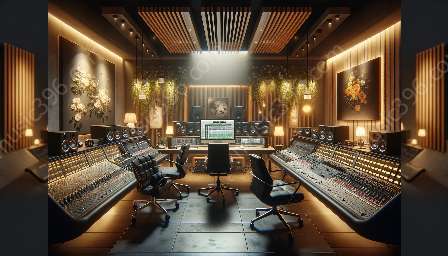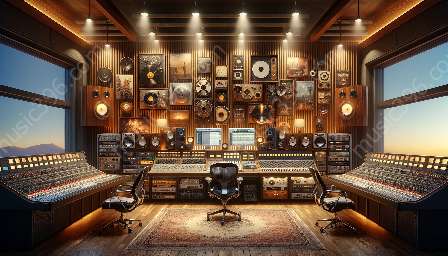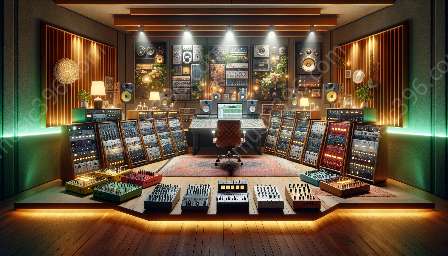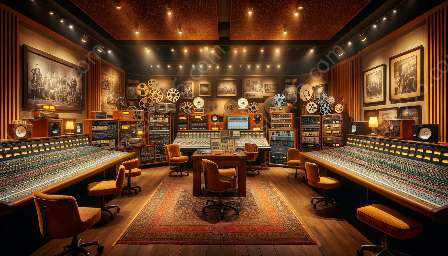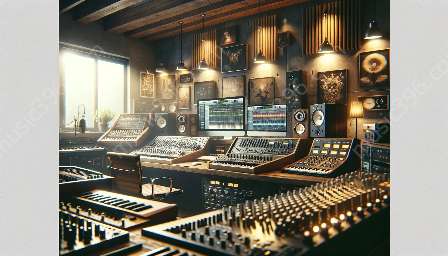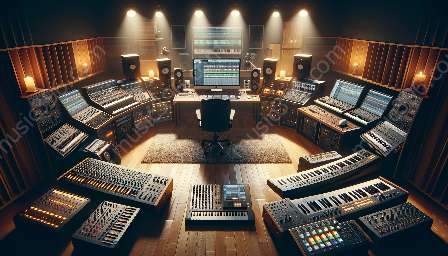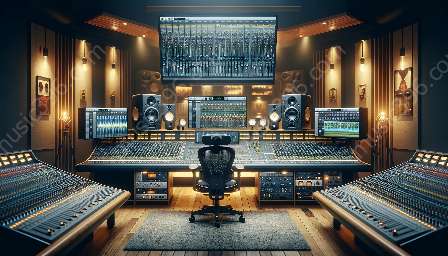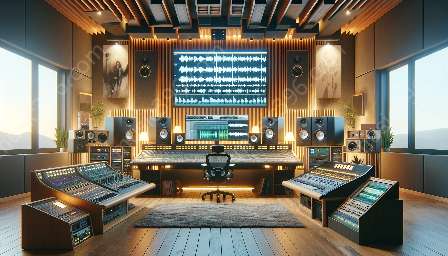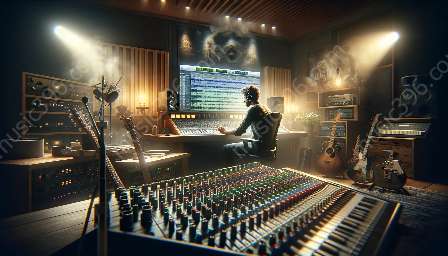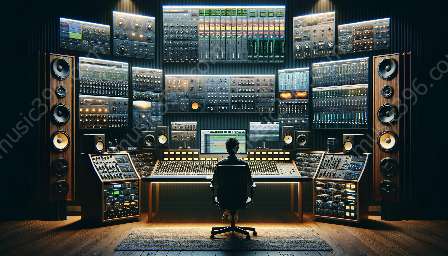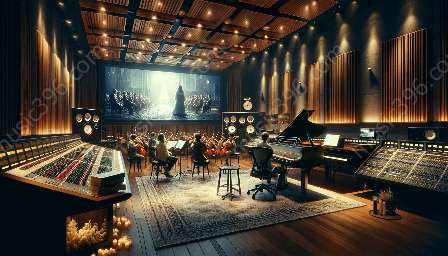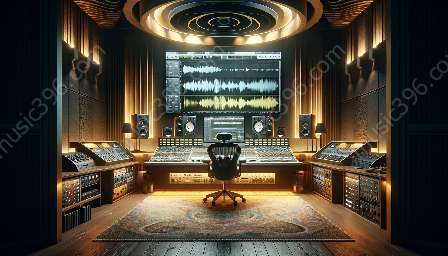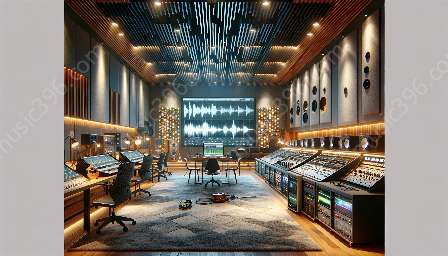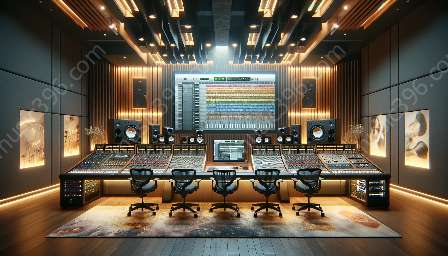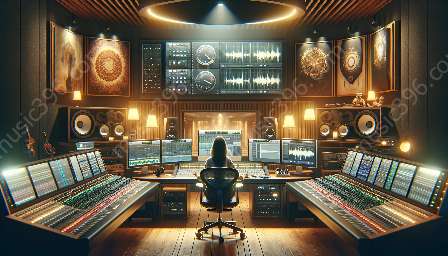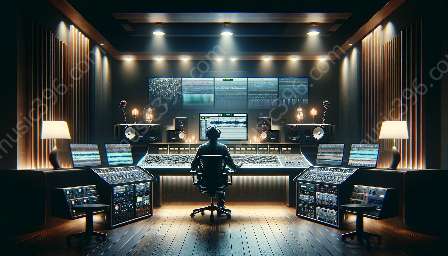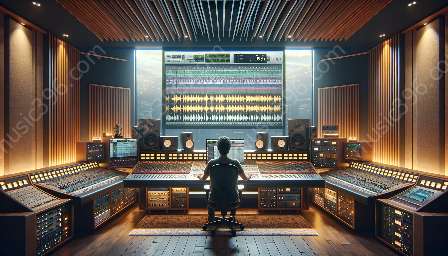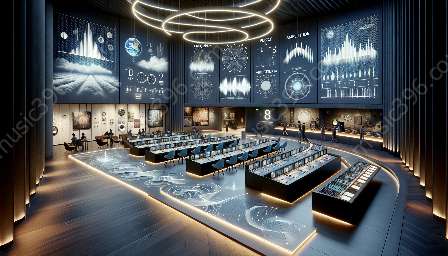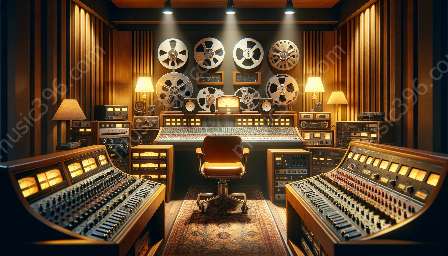Music technology has played a significant role in transforming the way music is produced and recorded. From the basics of music production to the intricacies of music recording, technological advancements have revolutionized the music industry.
The Impact on the Basics of Music Production
Music technology has had a profound impact on the basics of music production. With the advent of digital audio workstations (DAWs), musicians and producers now have access to a wide range of tools and functionalities to create, edit, and manipulate music. These DAWs allow for seamless recording, editing, and mixing of tracks, enabling artists to achieve professional-level production from the comfort of their own homes.
Furthermore, virtual instruments and software synthesizers have expanded the creative possibilities for music producers. Sample libraries and sound design software have made it easier for musicians to experiment with different sounds and textures, leading to a diverse and innovative music production landscape.
The Evolution of Music Recording
Music technology has also revolutionized the process of music recording. The introduction of digital recording techniques has significantly improved the quality and efficiency of recording sessions. Digital audio interfaces and high-quality microphones have made it possible for artists and engineers to capture pristine audio with minimal signal degradation.
Moreover, advancements in software and hardware have simplified the post-production process, allowing for seamless editing, mixing, and mastering of recorded material. This has led to a more streamlined and flexible approach to music recording, empowering artists to achieve their desired sonic vision with ease.
Advancements in Audio Processing and Effects
Another key aspect of music technology's role in production is the advancements in audio processing and effects. From equalization and dynamics processing to time-based effects and spatial processing, the availability of diverse and high-quality audio effects has transformed the way music is produced and recorded.
Furthermore, the integration of real-time processing capabilities in modern digital consoles and software platforms has empowered engineers and producers to make creative decisions on the fly, enhancing the overall sonic quality of music productions.
Collaborative and Remote Production
Music technology has also facilitated collaborative and remote production workflows. With the rise of cloud-based collaboration platforms and remote recording solutions, artists and producers can seamlessly work together irrespective of their geographical locations.
This has opened up new opportunities for cross-border collaborations and has democratized the music production process, allowing emerging talents to work with established industry professionals regardless of physical proximity.
Emerging Technologies and Future Trends
As technology continues to evolve, the role of music technology in production is expected to further expand. Emerging technologies such as artificial intelligence, machine learning, and spatial audio processing are poised to revolutionize the way music is created, produced, and consumed.
Additionally, advancements in virtual reality (VR) and augmented reality (AR) are likely to introduce new dimensions to the music production process, providing immersive and interactive experiences for both creators and audiences.
The Future of Music Production
The future of music production is intricately tied to the advancements in music technology. As these technologies continue to evolve, the boundaries of creativity in music production will continue to expand, offering new tools and methodologies for artists and producers to express their artistic vision.
Ultimately, the role of music technology in production is one of continuous innovation, empowering musicians and producers to push the boundaries of sonic exploration and musical expression.



